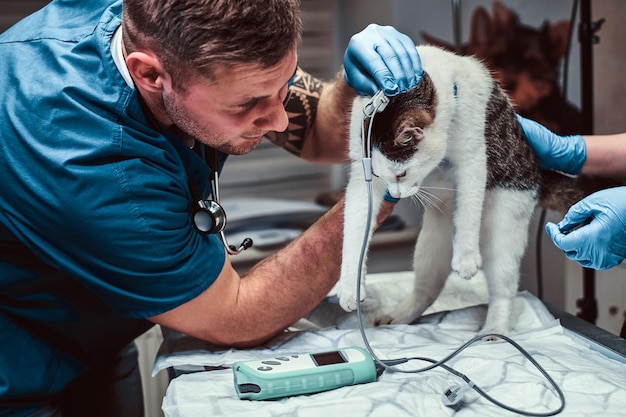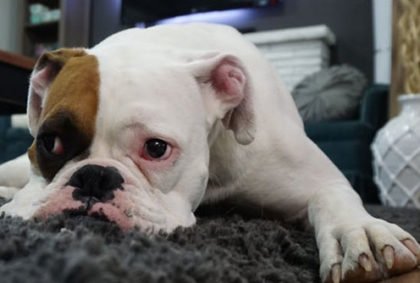What to Expect From Soft-Tissue Surgery at Grace Animal Hospital


What to Expect From Soft-Tissue Surgery at Grace Animal Hospital
Facing the possibility of surgery for your beloved pet can be stressful and overwhelming. At Grace Animal Hospital, we understand how important it is for you to feel confident and informed when it comes to your pet’s care. Located at 116 Collins Crossing Road, Holly Springs, NC 27540, our veterinary team is dedicated to offering comprehensive soft tissue surgery for pets in Holly Springs and surrounding communities. Whether your dog or cat needs a routine mass removal, a complicated abdominal procedure, or a repair for a wound or hernia, our veterinarians prioritize safety, comfort, and optimal recovery outcomes for every patient.
In this detailed guide, you’ll learn what soft tissue surgery involves, common reasons pets might need these procedures, how our veterinary professionals ensure your pet’s comfort and safety, and what you can expect during the recovery process. If you’re searching for a "vet near me" who provides both expertise and compassion, keep reading to discover how we support you and your pet every step of the way. For more in-depth information about our surgical services, you can also visit our page on soft tissue surgery services for pets at Grace Animal Hospital.
Recognizing When Your Pet Might Need Soft Tissue Surgery
Understanding when surgery might be necessary is the first step in advocating for your pet’s health. Common signs that may indicate your dog or cat requires soft tissue surgery include the presence of lumps or bumps under the skin that change in size, wounds or abscesses that do not heal on their own, persistent limping or swelling, unexplained weight loss, changes in appetite, or difficulty breathing. Other symptoms can involve vomiting, diarrhea, or signs of abdominal discomfort such as restlessness, stretching, or a distended belly. In some cases, your veterinarian might discover an internal concern during a routine wellness examination or through diagnostic imaging like ultrasound or radiology.
It’s important to remember that some conditions requiring soft tissue surgery for pets in Holly Springs can develop slowly and may not be obvious until they have progressed. Regular checkups with your veterinary team ensure early detection and intervention. If you notice any abnormal behavior or physical changes in your pet, scheduling an appointment with our Holly Springs veterinarians can provide peace of mind and help address issues before they become emergencies.
Causes: Why Do Pets Need Soft Tissue Surgery?
Soft tissue surgery encompasses a wide range of procedures involving organs, skin, muscles, and other tissues not related to bones or joints. Dogs and cats may require soft tissue surgery for several reasons. Masses—both benign and malignant—may need to be removed to prevent growth or confirm a diagnosis. Pets can also develop abscesses or infections that do not respond to antibiotics alone, requiring surgical intervention to promote healing.
Other common causes include foreign objects accidentally ingested, trauma resulting in wounds or hernias, or congenital abnormalities like umbilical hernias in puppies and kittens. Some pets may need surgery to repair injuries after accidents or fights, while others might require procedures such as bladder stone removal, laceration repair, or gastrointestinal surgery to address blockages or chronic digestive issues. At Grace Animal Hospital, our veterinary professionals are skilled at diagnosing and treating a wide variety of soft tissue conditions using advanced diagnostic technologies available in Holly Springs and surrounding communities.
What Happens During Soft Tissue Surgery for Pets?
Once your pet is diagnosed with a condition requiring surgery, our veterinarians will walk you through every step of the process. Preparation begins with a thorough physical examination and pre-surgical bloodwork to evaluate your pet’s overall health. Our surgical team uses this information to tailor anesthesia and pain management plans specifically for your pet, ensuring the safest possible experience. We understand that comfort and safety are top priorities; that’s why we utilize advanced monitoring equipment throughout the procedure to track your pet’s vital signs and respond quickly to any changes.
The types of procedures we perform at Grace Animal Hospital include mass removals, wound repairs, foreign body extractions, bladder surgery, and reconstructive procedures for skin or tissue defects. Each surgery is performed in our fully equipped surgical suite, using sterile techniques to minimize infection risk. Our commitment to fear-free visits means we use gentle handling, calming pheromones, and individualized protocols to reduce stress for every patient.
During your consultation, our veterinarians will discuss the anticipated surgical approach, expected outcomes, and any potential risks. We also provide detailed instructions for pre-operative care, including when to withhold food and water, how to prepare your pet for the visit, and what to bring on the day of surgery. For more details about the types of surgical procedures available, including advanced options, you can explore our specialized soft tissue surgery services for pets at Grace Animal Hospital.
Safety and Comfort Measures
At Grace Animal Hospital, we take extra steps to ensure your pet’s comfort and safety before, during, and after surgery. This includes pain management tailored to your pet’s needs, careful monitoring with state-of-the-art equipment, and the use of warming devices to maintain body temperature. Our veterinary professionals are trained to recognize subtle signs of discomfort or distress, and we adjust care protocols accordingly.
Pet Surgery Recovery Expectations: What to Expect After Soft Tissue Surgery
Recovery from soft tissue surgery for pets in Holly Springs varies based on the type of procedure, your pet’s age and overall health, and how quickly the condition was addressed. Immediately following surgery, your pet will be monitored in our recovery area until fully awake and stable. Most pets can return home the same day, although some complex cases may require overnight observation.
During the initial days after surgery, you can expect your pet to be groggy or less active as the effects of anesthesia wear off. Appetite may be reduced, and your pet might prefer a quiet, comfortable place to rest. Our veterinarians will provide you with detailed home care instructions, including how to care for the incision site, signs of potential complications, and when to administer medications.
Key aspects of pet surgery recovery expectations include monitoring the incision for redness, swelling, or discharge, limiting activity to prevent injury, and keeping your pet from licking or chewing at stitches. It’s also important to watch for signs of pain such as whining, reluctance to move, or loss of appetite. Your veterinary team will schedule a follow-up visit to assess healing and remove sutures if needed.
If your pet experiences vomiting, diarrhea, difficulty breathing, or sudden changes in behavior during recovery, contact our veterinarians promptly. Early intervention ensures the best possible outcome and helps your pet return to normal activities faster. For additional information on what to expect with advanced procedures, you may want to learn about our internal surgery services for pets or cancer surgery services for pets as appropriate for your pet’s condition.
Home Care and Prevention: Supporting Your Pet’s Healing
Your role in your pet’s recovery is just as important as the surgical procedure itself. Providing a calm, quiet environment helps minimize stress and speeds healing. Preventing your pet from jumping, running, or engaging in rough play is crucial in the days following surgery. The use of an Elizabethan collar or medical shirt may be recommended to prevent licking or chewing at the incision site.
Feeding your pet small, easily digestible meals and ensuring access to fresh water supports the healing process. Carefully administer all prescribed medications as directed by your veterinarian, and reach out if you have any concerns about side effects or changes in your pet’s behavior. Regularly check the surgical area for signs of infection or separation of the incision. If you notice persistent swelling, bleeding, or any unusual symptoms, contact our veterinary team immediately.
Preventive veterinary care, including regular wellness exams and early intervention for lumps, bumps, or injuries, reduces the likelihood of complications and the need for complex surgery. As your trusted partner for soft tissue surgery for pets near you, we are always here to answer questions and support you and your pet throughout the healing journey.
When to Call Your Veterinary Team: Recognizing Urgent Situations
While most pets recover smoothly from soft tissue surgery in Holly Springs, certain signs require immediate attention. Warning signs to watch for after surgery include difficulty breathing, severe pain, repeated vomiting, loss of consciousness, or significant bleeding from the incision. If your pet seems unusually lethargic, refuses to eat for more than 24 hours, or develops a fever, these can be signs of post-operative complications.
If your pet’s condition worsens or if you are unsure about any aspect of recovery, never hesitate to reach out to our veterinary team. Prompt communication with your veterinarian can make all the difference in preventing complications and ensuring a full recovery.
For general concerns or to discuss your pet’s surgical options, you can schedule an appointment by calling (919) 346-0285 or visiting us at 116 Collins Crossing Road, Holly Springs, NC 27540. If you are looking for the best veterinarian near me for comprehensive care and surgical expertise, Grace Animal Hospital is here to help.
Your Next Steps: Compassionate Surgical Care at Grace Animal Hospital
At Grace Animal Hospital, our commitment to your pet’s health and comfort guides everything we do. From the initial consultation to post-surgical follow-ups, our veterinary professionals in Holly Springs provide clear communication, advanced surgical techniques, and personalized support for every pet and their family. We believe that informed pet owners are empowered to make the best choices for their companions, and we are always available to answer your questions about soft tissue surgery for pets in Holly Springs and surrounding communities.
If your dog or cat may benefit from soft tissue surgery, or if you are seeking more information about pet surgery recovery expectations, we invite you to schedule a consultation with our experienced team. Whether you are a Holly Springs resident or searching for veterinary services near me in Apex, Fuquay-Varina, or Morrisville, you can trust our team to deliver the highest standard of care.
To learn more about our approach and available procedures, explore our soft tissue surgery services for pets at Grace Animal Hospital or call us at (919) 346-0285 to book your pet’s surgical consultation. Our clinic at 116 Collins Crossing Road, Holly Springs, NC 27540 is dedicated to serving as your trusted "vet near me" for soft tissue surgery and all your pet’s healthcare needs.
Disclaimer: This blog is intended for informational purposes only and should not be used as a substitute for professional veterinary advice. Always consult your veterinarian for specific guidance regarding your pet’s health and surgical needs. For more information about soft tissue surgery for pets in Holly Springs, please contact our veterinary team directly.



















